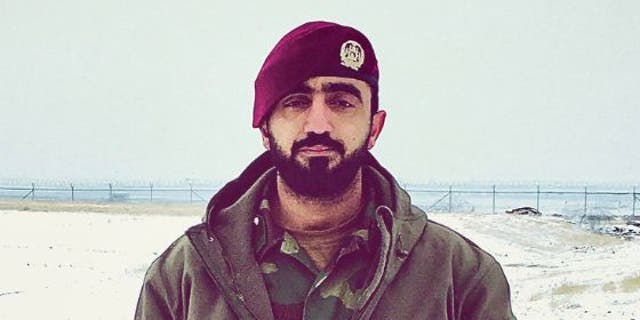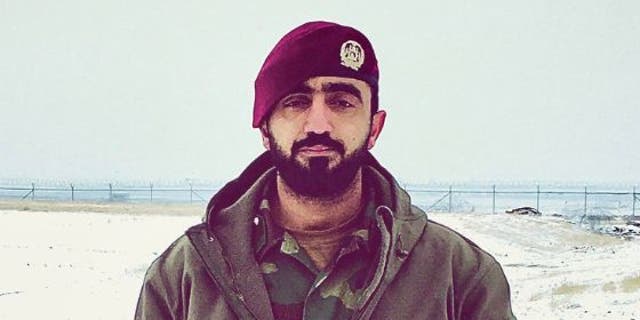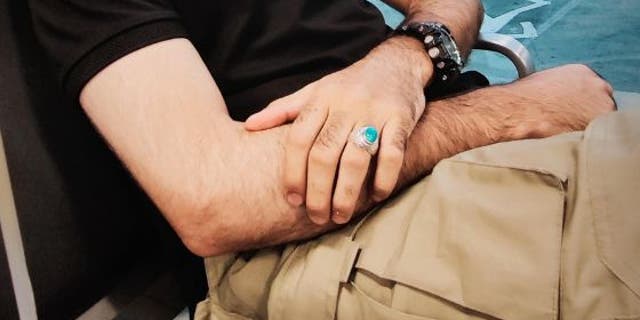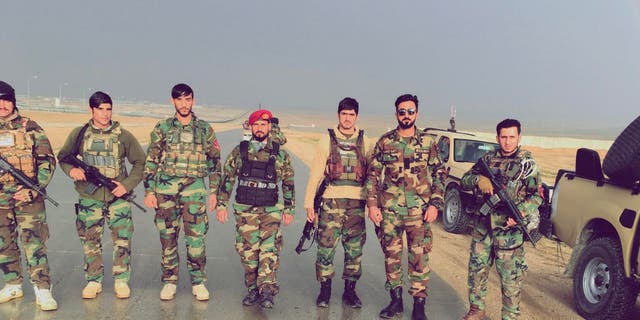
President Biden is being asked by U.S. veterans groups to intervene in an asylum case involving an Afghan soldier who previously fought against the Taliban.
Abdul Wasi Safi previously served with U.S. Special Operations Forces in Afghanistan, and after Kabul fell in August 2021, continued to fight the Taliban alongside the Northern resistance.
Wasi traveled to multiple safe houses after being forced to flee Afghanistan and relied on U.S. veteran volunteers in order to get aid and potential relocation, but was met with “harsh treatment and branded as a terrorist by the local community,” when he entered Pakistan, according to a letter by U.S. veterans groups that was sent to Biden on Dec. 21.
“He traveled on foot or by bus through 10 countries, surviving torture, robbery, and attempts on his life, to seek asylum in the United States from the threats on his life, and expecting a hero’s welcome from his American allies,” the letter states.
AFGHAN SPECIAL FORCES COMMANDO SEEKING ASYLUM GETS CAUGHT IN BROKEN US IMMIGRATION SYSTEM

Photo of Abdul Wasi Safi, a US-trained special forces operative who escaped from Taliban control, fled to Texas and was arrested for crossing the border seeking asylum. (Sami-ullah Safi )
While Wasi was able to find his way to America’s southern border on Sept. 30, he was detained by U.S. border patrol agents and charged with illegal entry, according to the letter. Wasi is currently being held at Eden Detention Center in Texas.
The veterans groups urge Biden in their letter to grant Wasi parolee status.
“Given the known retaliations from the Taliban on Afghan Special Operations Forces, Lieutenant Wasi’s asylum case is certainly credible and his death is certain if he were to be deported back to Afghanistan. The Afghan Special Forces faithfully served America, and not one of them should have to endure a path like this to reach safety,” the letter states. “We urge you to fulfill America’s promise to Lieutenant Abdul Wasi Safi and begin to heal the moral injury by granting him a parolee status as he awaits a hearing on his justifiable asylum claim.”
WHAT IS THE AFGHAN ADJUSTMENT ACT AND HOW COULD IT HELP AMERICA’S FORGOTTEN ALLIES?

Photo of Abdul Wasi Safi, a US-trained special forces operative who escaped from Taliban control, fled to Texas and was arrested for crossing the border seeking asylum. (Sami-ullah Safi )
Groups such as Special Operations Association of America, Save Our Allies, Ukraine NGO Coordination Network, and Project Exodus are among those who signed the letter.
In a previous phone interview with Fox News from the Eden Detention Center, Wasi said he’s disappointed in America’s response when he crossed the border,
“I was in a special force commando unit with the U.S. military,” Wasi said. “I wanted to come to the United States. I don’t select another country to help me because I was with them. But I come here, and they put me in jail.”
CLICK HERE TO GET THE FOX NEWS APP

Photo of Abdul Wasi Safi, a US-trained special forces operative who escaped from Taliban control, fled to Texas and was arrested for crossing the border seeking asylum. (Sami-ullah Safi )
“Ecuador, Colombia, Panama, Costa Rica, Nicaragua, Honduras, Guatemala and Mexico. I cross all that distance to come to United States because I was thinking and hoping the American government that they will help me,” Wasi said.
Fox News’ Jennifer Griffin, Liz Friden, and Krista Garvin contributed to this report.








